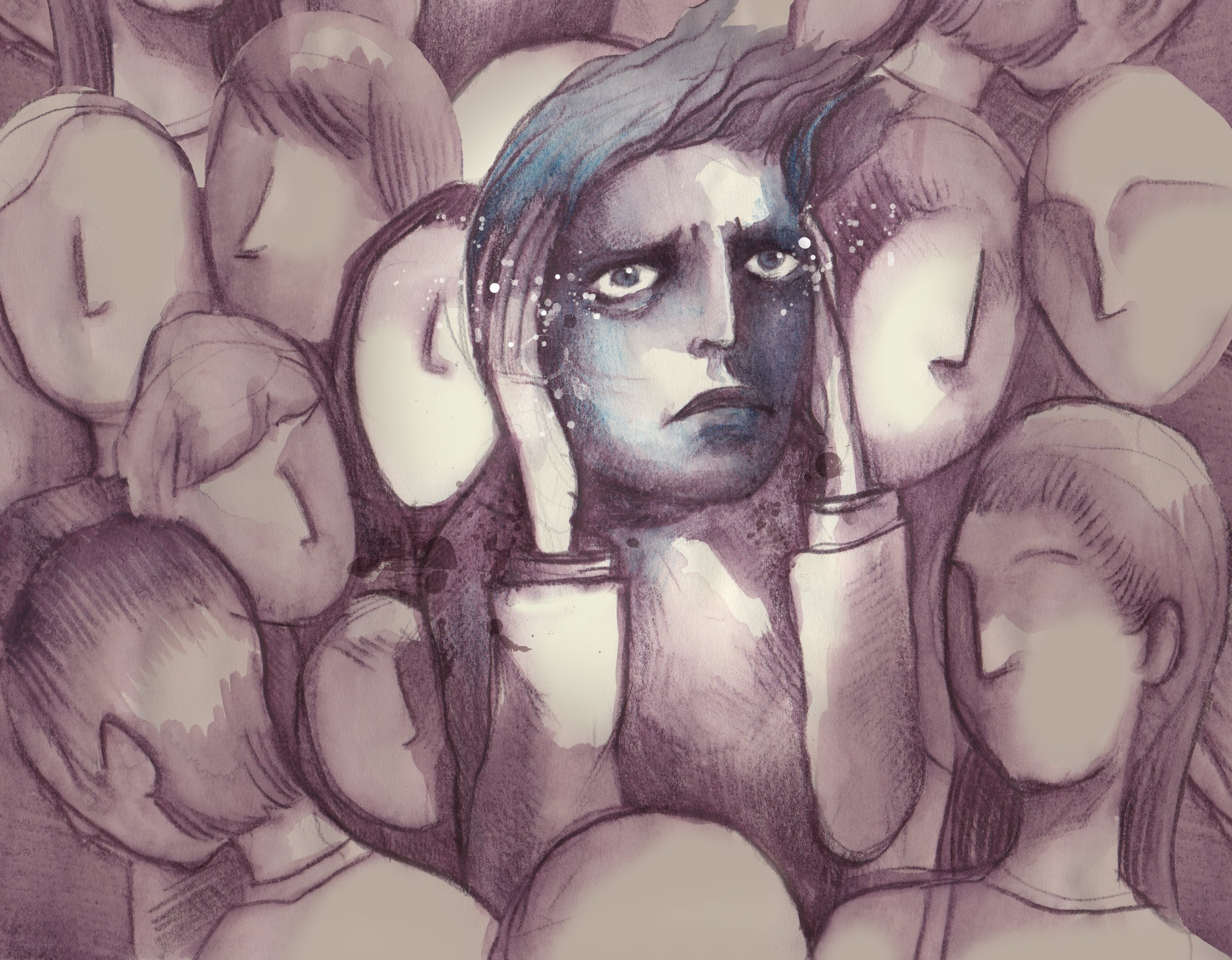Finding Freedom from Anxiety
3 forms of self-help for anxiety and how counselling can help with anxiety
“It's a little Anxious," Piglet said to himself, “to be a
Very Small Animal Entirely Surrounded by Water”
A.A. Milne
I wonder if you can identify with A.A. Milne’s character of Piglet, companion to Winnie the Pooh? He may be fictional - yet Piglet is no stranger to the reality of the feelings of fear, dread and apprehension that we label as “anxiety”. He’s aware of danger and threat and easily connects with thoughts and imaginings of “what if….” He has a tenancy to anxiously ruminate and contemplate the almost endless versions of what may happen. I wonder how familiar you are with this experience of anxiety?
In this blog, we’ll look at what anxiety is, and the purpose it serves for us as humans. Anxiety can be debilitating, but hope is not lost. There are ways you can respond to your own experience of anxiety and this blog explores some of these forms of self-help for anxiety you can begin to implement, as well as considering how counselling for anxiety can help you find freedom from the impacts of anxiety.
What is anxiety?
Anxiety is the unpleasant feeling of fear, worry or dread. It’s thought that the word “anxiety” stems from the Latin word “angō”, which means “I cause physical pain” or “I torment or distress”. Alternatively, the English word anxiety may also have developed from the Latin ‘angere’, meaning to choke, or strangle. Either way, the etymology of anxiety helps us to have a sense of what anxiety feels like and how it can impact a person’s life. Anxiety can cause physical discomfort and pain, leading to tense muscles, difficulty breathing and tension headaches and digestive issues. The troubling thoughts and endless rumination often associated with anxiety can really feel like torment or torture, especially when such thoughts disturb sleep or rest. There is no doubt about it, anxiety can cause real distress.
Anxiety can leave you feeling tormented, in pain and tense
How common is anxiety?
Most people feel anxious or scared at times, and it’s natural to feel anxious when facing change and stressful life events. It’s when anxiety becomes pervasive and interferes with our wellbeing and our relationships that anxiety becomes problematic.
Anxiety is defined by the NHS as a “Common Mental Disorder”. NHS research shows that 5.9% of UK adults experience Generalised Anxiety Disorder (GAD) within a given week. Other anxiety-based conditions such as phobias, OCD and Panic Disorder means that over 10% of UK adults have symptoms of anxiety that may or may not be treated and managed (McManus et al., 2016).
Anxiety can be a co-occurring condition with neurodivergence. Facing the additional challenge of navigating a neurotypical world can lead to anxiety. Statistically, autistic, dyspraxic, and ADHDers are at greater risk of experiencing depression and anxiety that their NT peers. It’s been estimated that up to half of all autistic people experience high levels of anxiety on a regular basis.
Living with anxiety is not uncommon.
Understanding anxiety
Why do you experience anxiety? What’s the point or purpose of anxiety? Understanding the purpose of anxiety can be helpful in making sense of, and even befriending your own anxiety. A certain amount of anxiety is useful to humans and other mammals in that it supports our survival. Anxiety fuels or fight and flight response, which can be lifesaving. Imagine the danger you’d face and succumb to if you were not able to react to a threat. Evolution has done a good job of ensuring that the ability to respond to perceived danger or threat is passed down from generation to generation.
When we face a perceived threat, we release hormones, including adrenaline and cortisol. These hormones alert us to be responsive and attuned to threats so that we can act to save our life. When faced with a threat, your heart rate increases, helping your body to quickly reach the parts of your body needed to run or fight the threat. This heart rate increase can result in feelings of wobbliness and breathlessness that are common symptoms of anxiety. This response is useful when we need to take prompt action to ensure our survival.
Anxiety - then - can be useful. However, for some people, the warning and action system of anxiety remains on high alert when a threat has passed, or the threat is assessed by others as “minor”. You might experience anxiety and a sense of being on-guard when any threat has passed, making relaxation difficult.
Persistent feelings and sensations of anxiety make it hard to switch off, relax or enter a resting state.
Self-help for anxiety
Whilst anxiety, with all its various symptoms, can impact your day-to-day functioning and quality of life, with support, you can find ways to better understand and then make choices that can help you to find relief from anxiety. One of these supports are simple self-help strategies to improve your wellbeing. Here we consider 3 self-help strategies for managing anxiety.
Mindfulness & meditation for anxiety
Mindfulness can support you in finding balance, providing respite from anxiety
Mindfulness and Meditation are ancient practices that have received a great deal of attention and interest in recent years. Mindful meditation is essentially a way of paying more attention and becoming aware of your experience of the present moment. We can think of it as a non-judgmental noticing of what is. Recent research (Galante et. al., 2021) shows mindfulness is an effective tool for promoting mental health for many people.
Mindfulness for anxiety is a accessible tool that requires zero financial investment. There are plenty of simple mindful meditations available online for free. Once you’ve mastered the basics of mindfulness practice, you can incorporate mindful moments into your daily life. A simple pause to mindfully pay attention to your breath, for example, costs nothing other than your time and attention.
If you are looking for resources to help you get started, the HeadSpace App provides a range of free resources via the HeadSpace YouTube channel. There’s also the Waking Up App, combining mindfulness meditation theory and practice in accessible chunks.
2. Step-into-nature to manage anxiety
Time spent in, with, or even imagining nature can be a balm for anxiety
Stepping into nature can help relieve stress and anxiety. Research has shown that spending 2-hours per week in nature is associated with good health and wellbeing (White et al., 2019). Taking a walk outside, cultivating nature in your garden or with a houseplant or taking a trip to the coast to watch the waves are all ways you can benefit. And, even if you can’t get outside you can still find ways to benefit from nature. A recent study showed that visualizing natural scenes helped in reducing anxiety symptoms (Nguyen & Brymer, 2018). Try closing your eyes and calling to mind a natural location you’ve felt at ease in before to benefit from this form of visualization.
3. Eat your way to freedom from anxiety
A diet rich in vegetables can help mental wellbeing, and reduce symptoms of anxiety
We know that certain foods or drink can increase anxiety levels. Excessive caffeine, alcohol and refined sugars are commonly cited triggers for anxiety. A healthy diet can, by contrast, support both our physical and mental health.
A Mediterranean diet, high in vegetables, fruits, legumes, nuts, beans, cereals, grains, fish, and unsaturated fats, can support mental wellness (Lassale, et al., 2019), and it’s been recognised for some time now that diets rich in probiotic foods can reduce symptoms of social anxiety (Hilimire, et al., 2015). Many people are finding that paying deliberate attention to what they eat - reducing foods and drinks that trigger anxiety - and increasing the amount of probiotic-rich foods such as pickles, sauerkraut, and kefir within their diet helps to manage anxiety.
Other forms of support for managing anxiety
We’ve covered 3 forms of self-help for managing anxiety. Self-help strategies can complement other forms of support for anxiety. The NHS also recognises education about anxiety, Talking Therapies, and medication as other ways to manage anxiety.
Therapy can be a way to untangle your experience of anxiety
Counselling offers chance to explore the roots of anxiety in your life.
Counselling for anxiety
Counselling or therapy for anxiety can help you to explore your own relationship with anxiety. It’s possible to begin to explore your own relationship with anxiety through self-reflection. This is something you can then choose to unpack and come to understand further with a counsellor. As a Psychotherapist, I’m interested in finding out what a person’s unique experience of anxiety feels like for you. I’m curious about what purpose or meaning anxiety may hold for you in your unique environment and situation. I certainly don’t want to treat you as a medical diagnosis or presume your experience of anxiety has one simple cause and one simple solution. You are far more than a label, and far more that “a person with anxiety”.
I offer both online counselling for anxiety, and face-to-face counselling in Preston for anxiety.
It’s easy for others around us to dismiss you as “over-reacting” or that you are “too sensitive”. Yet, such responses risk shaming and blaming. A counsellor will seek to offer you a non-judgemental space to explore your own anxiety, rather than blaming you for your experience. I offer both online counselling for anxiety, and face-to-face counselling in Preston for anxiety.
Often, as I work with people to address and explore anxiety, we consider questions such as
What beliefs and messages do you carry about your own sense of safety in the world?
What’s happened to you in the past, and how does your past impact fear and anxiety in the present?
In what ways do you feel, and have you felt, out of control and unsafe?
What messages you tell yourself when you experience anxiety?
What do you need and want to support you?
What would you like to change?
So, if you feel a little bit, or even a lot, like Piglet at times, have hope. There are many accessible self-help strategies out there that you can consider. Psychotherapy and counselling are also effective ways to find freedom from anxiety.
Make Contact
If you’d like to talk through how counselling can help you with a deeper exploration of your anxiety, do make contact with me, Claire Law.
We can talk through how online counselling or face-to-face counselling at my therapy room in Preston can help manage your anxiety. Take care.
References:
Hilimire, M. R., DeVylder, J. E., & Forestell, C. A. (2015). Fermented foods, neuroticism, and social anxiety: An interaction model. Psychiatry research, 228(2), 203–208. https://doi.org/10.1016/j.psychres.2015.04.023
Lassale, C., Batty, G.D., Baghdadli, A. et al. Healthy dietary indices and risk of depressive outcomes: a systematic review and meta-analysis of observational studies. Mol Psychiatry 24, 965–986 (2019). https://doi.org/10.1038/s41380-018-0237-8
McManus S, Bebbington P, Jenkins R, Brugha T. (eds.) (2016) Mental health and wellbeing in England: Adult Psychiatric Morbidity Survey 2014. Leeds: NHS Digital
Nguyen J and Brymer E (2018) Nature-Based Guided Imagery as an Intervention for State Anxiety. Front. Psychol. 9:1858. doi: 10.3389/fpsyg.2018.01858
Galante, J., Friedrich, C., Dawson, A. F., Modrego-Alarcón, M., Gebbing, P., Delgado-Suárez, I., Gupta, R., Dean, L., Dalgleish, T., White, I. R., & Jones, P. B. (2021). Mindfulness-based programmes for mental health promotion in adults in nonclinical settings: A systematic review and meta-analysis of randomised controlled trials. PLoS medicine, 18(1), e1003481. https://doi.org/10.1371
White, M.P., Alcock, I., Grellier, J. et al. Spending at least 120 minutes a week in nature is associated with good health and wellbeing. Sci Rep 9, 7730 (2019). https://doi.org/10.1038/s41598-019-44097-3










